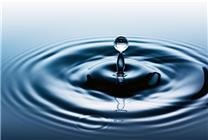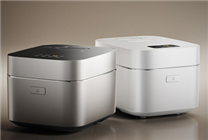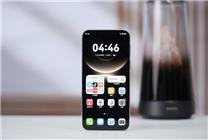Is Boiling Purified Water Necessary? A Comprehensive Guide
Summary:
- Understanding various purification technologies helps determine if boiling purified water is necessary.
- The necessity of boiling water largely depends on the specific type of water purifier used and individual health considerations.
- Regular maintenance of water purifiers is critical for ensuring safe drinking water.
Water is often referred to as the source of life, and the safety of drinking water directly impacts our health. As awareness of health issues increases, household water purifiers have become essential appliances in many homes. A common question arises: once a water purifier is installed, is it safe to drink the purified water directly without boiling it? This article delves into the scientific background behind water purification and the need for boiling.
Understanding Purification: The Role of Household Water Purifiers
To determine whether boiled water is necessary, we must first understand the capabilities and limitations of different types of water purifiers on the market. These devices can broadly be categorized into:
-
Pre-Filters: These serve as the first line of defense, filtering out larger impurities like silt and rust. However, they do not remove harmful substances such as bacteria, viruses, or heavy metals. Therefore, water treated solely by pre-filters should always be boiled before consumption.
-
Ultrafiltration (UF) Purifiers: The core of these systems is an ultrafiltration membrane, which effectively removes bacteria and some viruses. Ultrafiltration can filter particles as small as 0.01 to 0.1 microns. However, it falls short in eliminating heavy metals and certain organic compounds, meaning that while purified water may meet microbial standards, some risk remains, especially for vulnerable populations.
-
Reverse Osmosis (RO) Purifiers: The most advanced option, RO purifiers boast a filtration accuracy of up to 0.0001 microns, removing almost all pathogens, heavy metals, and organic matter. The filtered water from RO systems typically meets all direct drinking standards.
- Nanofiltration Purifiers: These systems fall between UF and RO, effectively removing larger contaminants while retaining some beneficial minerals. The safety of this purified water depends on the local raw water quality.
The Role of Boiling: Disinfection vs. Purification
Boiling water has traditionally been used to kill harmful microorganisms. While it effectively eliminates bacteria and viruses, boiling does not remove soluble pollutants like heavy metals or pesticides. Individuals relying on traditional methods often overlook that boiling does not enhance water quality when contaminants are already present.
For water treated with advanced purification technologies like RO, boiling becomes unnecessary. If the water purifier is well-maintained and the filters are replaced regularly, the water is safe to drink without boiling.
Debunking Myths: Minerals in Purified Water
A common misconception is that RO-purified water lacks essential minerals, leading to health risks. However, minerals consumed by the body mainly come from food, not water. The contribution of drinking water to mineral intake is minimal. The World Health Organization supports this view, affirming that consuming pure water with a balanced diet poses no health threat.
Moreover, boiling water can lead to the precipitation of minerals, thus further reducing its already minimal content. If taste is a concern, boiling may alter the characteristics of both RO-purified and mineral-rich water. Drinking directly from a well-functioning purifier may actually provide a better taste.
Tailored Recommendations for Different Scenarios
-
At Home:
- RO Purifiers: If filters are changed as recommended, purified water can be consumed directly.
- UF Purifiers: Before drinking, evaluate the raw water quality. For healthy adults in areas with good water quality, boiling might not be necessary, but vulnerable groups should still consider boiling.
- Pre-Filters: Always boil water as these systems do not ensure safety from pathogens.
-
Special Situations:
- Outdoor Activities: Use portable purifiers with RO or UF capabilities. Given the unpredictability of outdoor water sources (like rivers), boiling is advisable to mitigate any potential risks.
- Using Others’ Purifiers: If unsure about filter maintenance and type, boiling without direct verification is safer.
- Long-term Use: Regular maintenance of water purifiers is more crucial than boiling. Neglecting to replace filters can lead to water contamination and safety issues.
Conclusion: Choose Wisely, Maintain Regularly
In summary, whether to boil purified water cannot be answered with a simple yes or no; it depends on circumstances. Advanced purification technologies may allow for direct consumption, while some scenarios and individual health considerations may necessitate boiling.
The essence of drinking water safety lies in effective purification rather than boiling. By selecting the right purification system based on personal needs and maintaining equipment diligently, you can ensure access to safe and healthy drinking water without relying solely on traditional boiling methods.









